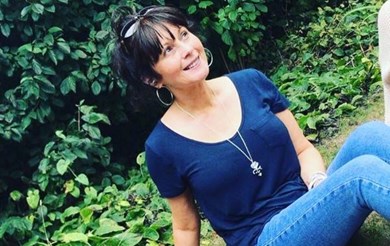Family reaction to a brain injury
It has often been said that brain injury affects whole families, not just individuals. Many difficult stages have to be passed through from the initial shock of the news of an injury, to eventual acceptance that things may now be very different from how they used to be - for both the individual concerned and the whole family.
Living with a brain injury
Some would say that families are the real victims and often suffer more than the brain-injured person because they are more likely to have accurate insight into the problem. No family is ever prepared and ready for a brain injury; most families already have a full agenda of problems to cope with before clearing the decks to cope with the problems of brain injury. Research into the effects of severe brain injury on the other family members gives some indication of the extent of their difficulties. The following points are worth noting:
- Close family members are likely to experience high levels of anxiety and depression during the years following a brain injury. As time elapses, there is often a decrease in relatives' capacity for coping, particularly with emotional and behavioural problems.
- Spouses often feel isolated and trapped with a marriage where their emotional needs are not being met. Some describe this as being neither married nor single. Relationships are put under enormous strain and it is estimated that between 20 and 50 per cent of all marriages in which one spouse has had a severe head injury end in divorce.
- Children often experience emotional problems as, alongside coping with the initial trauma and the subsequent difficult behaviour of a parent with a brain injury, their own needs are often neglected and this can impair their performance at school.
- Families need attention, education, guidance and support if they are to survive, regroup and rebuild their lives. Some families cope better than others, but all have difficulties. There is no normal way of responding to a brain injury. The saying that 'people act abnormally in abnormal situations' is undoubtedly appropriate.
The people in families and relationships who seem to cope best are those who have two special qualities:
Firstly, they have the ability to be flexible, not being rigidly tied to how things ought to be but being able to embrace change and view it as a challenge.
Secondly, they have the ability to communicate openly and honestly, directly expressing emotions both positive and negative and recognising the needs of themselves and others within the family. If a family has these characteristics of flexibility and open communication, then it is possible that, out of the crisis of brain injury, a family can grow in strength through its way of dealing with it.
The fragility of life can give a whole new perspective and intensity to the love that existed prior to the brain injury. Having a person with disability in the family often brings a new sensitivity and awareness to other members of the family. It is often said that the experience of head injury tends to make strong marriages and relationships stronger and troubled relationships more troubled.
My story
Amy and Will Perring
On Valentine's Day in 2012, Amy Perring met rugby journalist Will Wood, from Gloucestershire, while on holiday in Dublin and their love quickly blossomed. Little did the couple know their relationship would soon be put to the test just one year later when Will suffered a near-fatal brain injury that changed the course of their future in an instant.
Read storyCaring
If you are caring for someone with a brain injury or have a relative being treated in hospital, this section will help you to meet the challenges ahead and find the support you need.
Find out moreCarer support groups
Often the best source of support is other carers in a similar situation to yourself. Find out more about what's available here.
Find out moreSupporting people to make decisions
This page gives information on how to help people make their own decisions after brain injury, and how to act on their behalf if they are unable to do so.
Find out more









